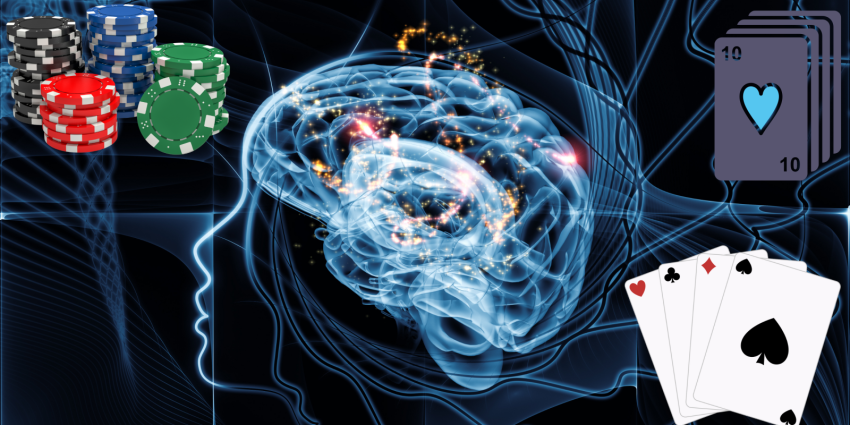The psychology of poker tournaments plays a crucial role in determining success at the table, as players navigate the intricate dynamics of mental strategy, emotional control, and opponent analysis. Unlike casual card games, tournaments require a deep understanding of not only poker strategy but also the psychological tactics that come into play amidst the thrill of competition. Mastering skills such as reading opponents and managing your emotional responses can transform your approach to the game, offering a tactical edge that sets you apart from others. As you explore winning poker tips and learn about poker mental game strategies, you’ll discover how the psychological aspect can often be the decisive factor in high-stakes scenarios. In this guide, we aim to unveil the essential techniques that seasoned players utilize to outsmart their rivals and enhance their overall performance in tournaments.
Diving into the world of competitive card play, understanding the mental dynamics involved in high-stakes poker games reveals a layer of complexity that goes beyond mere luck. The nuances of poker tournaments demand players to master alternative skills that encompass both strategy formulation and psychological insight. Grasping the importance of opponent analysis, alongside emotional resilience, can significantly elevate your chances of victory. As you cultivate your mental game, integrating effective strategies for handling pressure and anticipating rival moves, you’ll find yourself more equipped to face the challenges of tournament play. This exploration into the psychological elements of poker not only prepares you to confront opponents more adeptly but also enriches your understanding of the game’s intricate balance of intellect and emotion.
The Psychology of Poker Tournaments: Reading Opponents Effectively
Reading your opponents is a fundamental aspect of the psychology of poker tournaments. Successful players have developed keen observational skills that allow them to decipher the subtle cues and tells exhibited by their opponents. For instance, a player who suddenly becomes overly animated may be experiencing increased confidence in their hand, whereas one who appears tense or restless may be hiding weakness. This level of perception requires a deep understanding of human behavior and psychology, helping players to transform subjective observations into actionable strategies that enhance their winning potential.
Moreover, in the mental game of poker, assessing emotional responses can yield critical insights. Each player is navigating their unique emotional landscape; some might remain stoic under pressure while others display noticeable signs of stress or excitement. By interpreting these emotional cues accurately, players can exploit weaknesses in their opponents’ game plans. The ability to read opponents not only boosts a player’s strategic depth but also builds psychological dominance at the table. This is where understanding your opponent’s mindset, combined with your poker strategy, can significantly tip the odds in your favor.
Mastering Emotional Management in Poker Tournaments
Emotional management is one of the most crucial yet overlooked aspects of success in poker tournaments. A player’s ability to maintain composure can make the difference between a memorable win and a demoralizing loss. Facing high-pressure situations can lead to tilt, where emotional distress clouds judgment, causing players to make impulsive, irrational decisions. Therefore, honing emotional resilience through mindfulness practices or pre-game routines is essential for cultivating a winning mindset. Techniques such as visualization, meditation, or even simply acknowledging one’s emotional state can empower a player to respond more thoughtfully rather than reactively.
In addition, the psychological impact of emotional management extends beyond individual play; it can also influence opponent perceptions. A player who demonstrates control amidst the chaos is often viewed as confident and competent. This perception can create psychological barriers for opponents, who might second-guess their strategies when facing a player that seems unfazed by the game’s pressures. Employing effective emotional management not only helps players make better decisions but also strengthens their psychological positioning at the table, elevating their overall performance in tournaments.
Frequently Asked Questions
What are some effective emotional management strategies in poker tournaments?
Effective emotional management strategies in poker tournaments include techniques like deep breathing, taking regular breaks, and establishing a consistent pre-game routine. These practices help players maintain composure under pressure, preventing emotional turmoil that could lead to poor decision-making. By cultivating emotional resilience, players can make calculated decisions, turning emotional challenges into strategic advantages in their poker mental game.
How does reading opponents enhance poker strategy in tournaments?
Reading opponents plays a crucial role in enhancing poker strategy during tournaments. By observing behaviors, emotional reactions, and betting patterns, players can gain insights into their opponents’ mental states. For instance, recognizing tells, such as fidgeting when bluffing or confident betting after drawing a strong hand, allows players to adjust their tactics accordingly. This skill not only informs decision-making but also helps in anticipating future moves, effectively outsmarting opponents in high-stakes situations.
| Key Concept | Description |
|---|---|
| Emotional Management | Players must recognize and manage their emotions to avoid poor decisions such as going on tilt. |
| Levels of Thinking | Thinking one level higher than opponents can inform strategies and decisions. |
| Reading Opponents | Observing behaviors and reactions helps players anticipate opponents’ moves. |
| Strategic Psychology | Understanding psychology aids in exploiting opponents’ weaknesses and cultivating an advantageous image. |
| Maintaining Focus | Cultivating focus and control is essential to react appropriately and avoid distractions. |
Summary
The psychology of poker tournaments is an intricate web of strategies that intertwine emotional control, strategic thinking, and opponent observation. By mastering the psychological aspects of the game, players can cultivate a significant edge over their competitors. Understanding how to manage emotions prevents costly mistakes, while the ability to think on multiple levels allows for advanced play. Observational skills enable players to read opponents effectively, further enhancing their strategy development. Moreover, maintaining focus amidst distractions is critical for success. Ultimately, the journey of understanding the psychology of poker tournaments reveals that triumph in this arena is as much about the mind as it is about the cards one holds.
